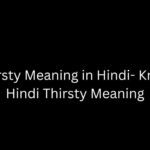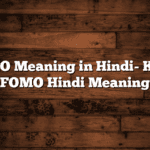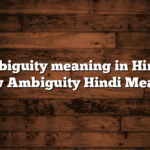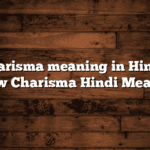Courage, or veeram in Tamil, holds an exalted place in Tamil culture and history. Stories of brave kings, warriors, and deities fill ancient Sangam literature and folk tales, offering insight into how Tamils have conceptualized courage over the millennia. In this article we talk about How is ‘Courage’ understood in Tamil culture.
Table of Contents
Defining Courage
In the Tamil lexicon, veeram denotes not only physical bravery in battle, but also moral and spiritual courage to stand up for what is right. Unlike Western notions of courage as aggressive fierceness, Tamil courage balances ferocity with wisdom, selflessness, and justice.
Great Tamil kings and warriors are extolled not just for being fearsome fighters, but for using force judiciously to protect the weak and uphold dharma, the cosmic order. Tamil literature praises thoughtful courage over brute force, level-headedness over hot-headedness. Hence the Tamil word veeran denotes not just a brave warrior, but an ethical hero who wields violence carefully and lives by high ideals.
Martial Traditions
Accounts of popular folk deities and kings illustrate key markers of courage in Tamil tradition. Deities such as Madurai Veeran and Muneeswarar embody valor and martial prowess. In folk songs, they are depicted as fierce warriors riding horses and zealously guarding their domains against injustice.
At the same time, they are also portrayed as compassionate defenders of the helpless. Hence Tamil courage synthesizes ferocity on the battlefield with kindness off it. Additionally, these folk heroes are glorified not just for their combat skills, but also their loyalty and commitment to their rulers and subjects. Hence courage in Tamil culture emphasizes both might and moral rectitude.
The legendary Velir kings similarly won acclaim for their military audacity, yet also their wisdom in governance. Chera king Senguttuvan is praised in the Silappatikaram epic not only for vanquishing foes in battle but also for his judicious rule and protection of the arts. These examples underscore how Tamil courage comprises both valiance and virtue, might tempered by morality.
Women Warriors
Importantly, Tamil literature also celebrates the courage of female warriors like the Velir chieftain Alli and the Pandya queen Mangaiyarkkarasi, who battled aggressively to defend their honor and domains. Alli is lauded for defeating enemies in battle, while Mangaiyarkkarasi gathered an army herself to recapture her besieged city.
These heroines’ stories reflect that Tamil culture recognizes women too as capable of extraordinary courage in times of crisis. Their gender does not preclude displays of valor, strength, and military leadership praised in male heroes. So Tamil courage transcends modern gender stereotypes.
Spiritual Courage
Not just martial courage, Tamil tradition also venerates spiritual and moral courage. The Tamil bhakti (devotional) movement exalts poet-saints who courageously defied caste orthodoxy to express their love for God.
Sekkizhar’s Periyapuranam hails the twelve Alvar saints (6th-9th century CE) for braving ostracization, persecution, and even attempted murder to worship Lord Vishnu in unconventional, highly emotive ways. Andal’s poetry boldly articulates a young girl’s intimate yearning for Lord Krishna, while the Shaiva saint Manikkavacakar disregarded social opprobrium to roam the streets singing ecstatic songs to Shiva.
These saints’ fearless non-conformism and refusal to self-censor their religious passions in the face of public scorn represent another facet of Tamil courage. Their examples celebrate conviction of spirit over external pressure or self-doubt.
Kattabomman’s Defiance
Courage in Tamil tradition thus connotes not just valor in battle but also principled audacity, including spiritual non-conformism. This multidimensional concept of veeram is embodied by the celebrated 18th century Palayakarrar (Poligar) chieftain Veera Pandiya Kattabomman.
Kattabomman courageously defied British East India Company tax collectors and refused to bow before tyranny even under pain of execution. His defiant words to the British while being hanged – “This Kattabomman’s illam (domain) will not cede to foreigners” – became legendary rallying cries in the later Indian freedom struggle.
Kattabomman’s story continues to epitomize the Tamil spirit of courage – refusing to bend before injustice whatever the cost. His veeram combined principled audacity on the battlefield with principled resistance in the face of state repression. This fusion of physical and moral courage represents the apotheosis of Tamil veeram.
Beyond Caste
Finally, Tamil courage surmounts caste barriers in the 20th century figure of Kuyili, a member of the supposedly “untouchable” Arunthathiyar caste. Kuyili deliberately doused herself in oil and set herself alight, sacrificing her life to destroy British arms and ammunition during a raid in the 1805 battle against colonial rule at Sivaganga.
This act of suicidal courage displayed by a humble village woman remains almost unparalleled in Indian history. Kuyili’s veeram poignantly subverts notions that only male members of upper castes are capable of transcendent courage. Instead, her actions underscore that extraordinary valor in Tamil tradition can come from anyone regardless of caste or gender when acting selflessly for a higher cause.
The myriad parables of Tamil courage – from royals to revolutionaries, warriors to poet-saints, men to women – reveal multilayered cultural notions of valor that interweave heroism on battlefield and moral arena. Hence, courage in Tamil tradition constitutes not brute machismo but rather a careful balance of ferocity and ethics, spiritual daring, and principled resistance to injustice. This nuanced, expansive paradigm continues to suffuse Tamil culture today. I sincerely hope you find this “How is ‘Courage’ understood in Tamil culture?” article helpful.
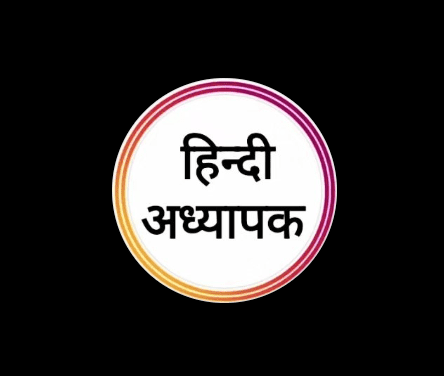
Dr. Rajesh Sharma is a Hindi language expert with over 10 years of experience and a Ph.D. in Hindi Literature from Delhi University. He is dedicated to promoting the richness of Hindi through his well-researched articles on meaninginnhindi.com. Follow Dr. Sharma on Instagram @hindi_adhyapak, where he shares insights with his 121K followers.





